-
Welcome to Tacoma World!
You are currently viewing as a guest! To get full-access, you need to register for a FREE account.
As a registered member, you’ll be able to:- Participate in all Tacoma discussion topics
- Communicate privately with other Tacoma owners from around the world
- Post your own photos in our Members Gallery
- Access all special features of the site
Second Spark Plug change at 85123 miles
Discussion in '2nd Gen. Tacomas (2005-2015)' started by CROM123, Mar 28, 2020.
Page 2 of 2
Page 2 of 2


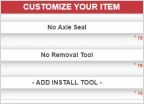 ECGS Bushing install questions.
ECGS Bushing install questions.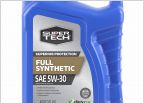 What Motor oil are y'all using
What Motor oil are y'all using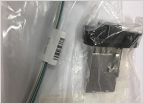 Air Conditioner Dial: Either Full-Blast or Off
Air Conditioner Dial: Either Full-Blast or Off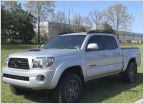 OEM Roof Rack PT27835170 (3rd Gen) vs PT27835050 (2nd Gen)
OEM Roof Rack PT27835170 (3rd Gen) vs PT27835050 (2nd Gen)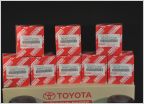 Oil filter for 2013 Access Cab 2.7L 4 cylinder?
Oil filter for 2013 Access Cab 2.7L 4 cylinder?












































































